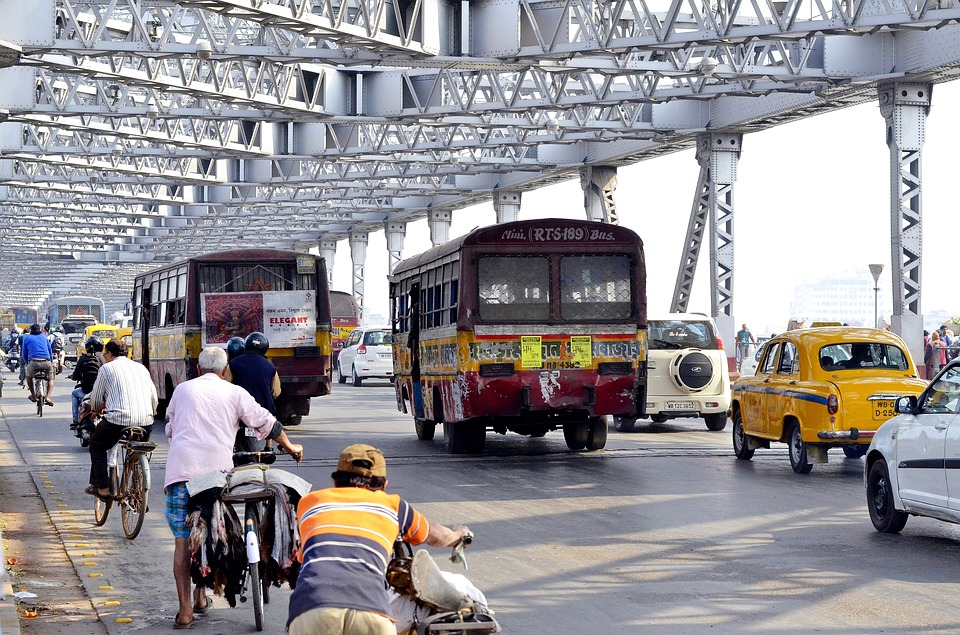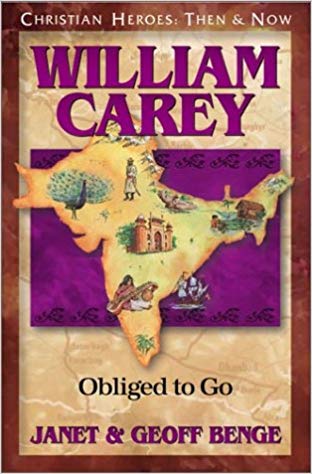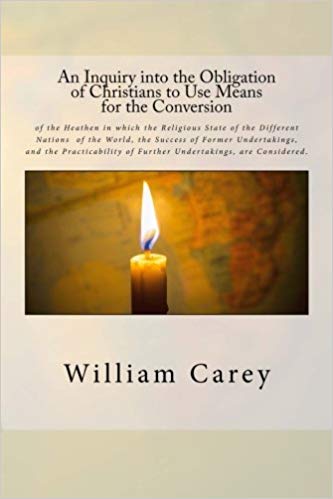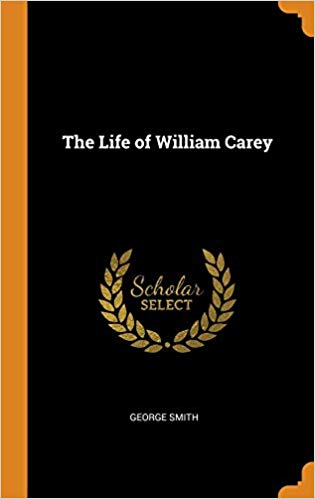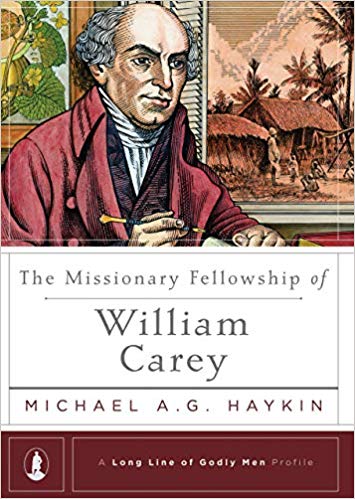William Carey was born August 17, 1761 in Paulerspury, England. His parents, Edmund and Elizabeth Carey, had five children, of which William was the eldest. They belonged to the Church of England, and his father was a parish clerk and the schoolmaster of the village when Carey was six years old. He was very gifted in language; he taught himself Latin as a child.
He went to work as an apprentice to a cordwainer (a shoemaker) when he was 14. While his master was in the Church of England as well, his fellow apprentice John Warr was a Dissenter, which means he did not follow the beliefs of the Church of England. Carey joined with Warr and other Dissenters and set up a Congregational church in a nearby town. During the same years, he taught himself Greek, with a bit of assistance from a neighbor who had attended college.
William was educated, but his wife Dorothy was unable to read or write. This did not unduly affect their life together, however. The Careys had seven children, though the two daughters did not survive infancy and one son died at 5 years old. Carey took over the shoemaker’s shop when the man died and in the following years he studied and learned four more languages: Hebrew, Dutch, French, and Italian.
Carey committed himself to the Baptist denomination after his baptism in October 1783. He attended with John Sutcliff, John Ryland, and Andrew Fuller, with whom he became close friends. He became the village of Moulton’s schoolmaster in 1785 and was also asked to become the pastor of the Baptist church that was local to him.
After reading things from Jonathan Edwards and James Cook, Carey became interested in missions work. His interest increased through the works of John Eliot and David Brainerd. Carey accepted the position of full-time pastor of Harvey Lane Baptist Church in Leicester in 1789. In 1792 he published An Enquiry into the Obligations of Christians to use Means for the Conversion of the Heathens, which contains five parts:
- The command of Jesus to make disciples of the world and how it is a binding command to all Christians,
- Missionary activity history, starting at the early church and going through Brainerd and John Wesley,
- Statistics about religion and population in every country of the world, which Carey compiled while he was a schoolteacher,
- Answers to objections about sending missionaries, including such things as language difficulties and mortal danger, and
- How and why a missionary society should be formed by the Baptist denomination, and how it can be supported.
This was in direct contrast to the common beliefs of many British Baptists of the time, whose doctrine followed more hyper-Calvinism – that humans were unnecessary to bring people to God.
The quote for which William Carey is most well known is “Expect great things from God; attempt great things for God.”
He went on to found the missionary society that is now known as BMS World Mission (Baptist Missionary Society World Mission) with Andrew Fuller, John Ryland, and John Sutcliff. They began raising funds and determining locations and chose Dr. John Thomas, a medical missionary, to support. Dr. Thomas was headed to India and Carey chose to accompany him.
Carey’s wife originally did not want to join him on the mission, as she had never left England before and was pregnant with their fourth son; however, she agreed with the condition that her sister would help her birth the child. The two families were delayed on the way, at the Isle of Wight, when the captain was told he would lose his command if he took the missionaries to Calcutta, because the journey was unauthorized. They found a ship in June that was willing to take them the rest of the way. Carey’s fourth son had been born in the meantime, and the family and Dorothy’s sister continued to Calcutta, arriving in November.
Carey’s friend knew a man in Calcutta that owned indigo factories, and Carey began managing one after their first year to support his family while they ministered. He also began learning the local language, Bengali, and translating the New Testament into it.
Also during this time, his son Peter contracted dysentery, which took his life. His mother suffered a nervous breakdown and was never the same after that.
Despite this, Carey set up a mission outreach and a school where he taught the people. They also acquired a printing press, which he used to print the Bible in Bengali.
In 1799, more missionaries arrived in Calcutta from England, and the Careys moved to Serampore, where he worked with Joshua Marshman and William Ward for the remainder of his ministry.
He translated the Bible into many other languages, both in full and in part, including Assamese, Hindi, Marathi, Oriya, and Sanskrit. He wrote grammars in several languages and dictionaries, as well. He printed books for the schools and other books. He wrote poetry, prose, and songs in Bengali.
He was active in promoting change to Indian laws, resulting in the outlawing of infanticide and Indian widows joining their deceased husband’s funeral pyres. He encouraged the Indian people to become missionaries to their own people.
He spent forty-one years in India, before dying there in 1834 at the age of 73.
William Carey has been called the father of modern missions. His whole goal in life was to bring the truth of God to as many people as he possibly could.
Read more about William Carey in these books:
William Carey: Obliged to Go
This book follows Carey’s journey to India and his ministry there.
An Inquiry into the Obligation of Christians to Use Means for the Conversion of the Heathen
This paperback book contains the text of William Carey’s manuscript which shared his views on the need of missions with the Baptists of his time.
Life of William Carey
This book by George Smith examines the life and ministry of William Carey.
The Missionary Fellowship of William Carey
Another biography of William Carey, written by Michael A.G. Haykin.

